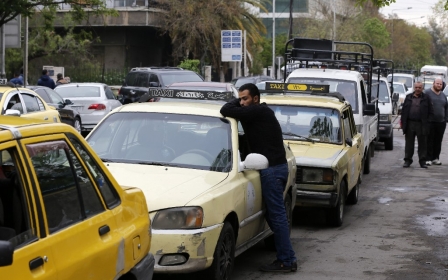Syrian presidential elections slated for next month slammed as 'farce'

A presidential election announced by Syria on Sunday for next month has been dismissed as a "theatrical farce" by opponents of President Bashar al-Assad.
Parliament Speaker Hamouda Sabbagh said candidates have 10 days to submit their candidacy. They require the backing of 35 members of parliament, which is dominated by Assad's Baath party.
"We consider Assad's parliament to have no legitimacy, and this is a theatrical farce and a desperate effort to reinvent this criminal regime," said Mustafa Sejari, a prominent opposition figure.
Britain, France, Germany and Italy and the United States have all already called for a boycott of the 26 May election.
"These elections will neither be free nor fair. They will not legitimize the Assad regime," US envoy Linda Thomas-Greenfield told the UN Security Council last month, ahead of the expected poll.
Assad's violent crackdown on protests against his rule led to the now decade-long civil war in Syria, and critics said they do not trust the election, which had been expected this year, will be fair.
Speaking on the 10th anniversary of the start of pro-democracy protests, Thomas-Greenfield told Security Council members the elections "do not meet the criteria laid out in Resolution 2254 - including that they be supervised by the UN or conducted pursuant to a new constitution".
'The presidential ballot will go ahead'
Assad's supporters say Washington and its Western allies are seeking to bring down the Syrian president with the crippling sanctions they have imposed.
"Despite the expectations of Syria's enemies, the presidential ballot will go ahead," said Husam al-Deen Khalsi, a politician from Latakia province, a bastion of Assad's Alawi sect.
"Our rulers have not followed Washington's or Israel's dictates."
The poll comes amid a crushing economic crisis, compounded by the coronavirus pandemic and a slew of western sanctions, including from the US, that have targeted key figures, including Assad and his wife, Asma.
Assad came to power in 2000 after the death of his father, Hafez al-Assad, who became president in 1971 after a military coup the previous year.
Assad held a disputed presidential election in June 2014, which he won by 88.7 percent of the vote.
Middle East Eye propose une couverture et une analyse indépendantes et incomparables du Moyen-Orient, de l’Afrique du Nord et d’autres régions du monde. Pour en savoir plus sur la reprise de ce contenu et les frais qui s’appliquent, veuillez remplir ce formulaire [en anglais]. Pour en savoir plus sur MEE, cliquez ici [en anglais].




